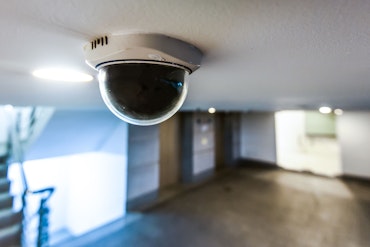CCTV in aged care trial begins in SA
In a bid to strengthen safeguards and enhance the safety and wellbeing of residents in aged care, a CCTV trial has begun at two aged care sites in South Australia (SA).

Two South Australian aged care facilities are taking part in a trial of having CCTV installed in resident areas (Source: iStock)
The Australian first trial started earlier this week, with two SA Health operated pilot sites, Northgate House in Adelaide and Mount Pleasant Aged Care in the Adelaide Hills, taking part in the 12-month trial.
South Australian Minister for Health and Wellbeing, Stephen Wade, said SA’s Marshall Government was focused on enhancing the safety of aged care residents.
“The 12-month trial aims to enhance resident safety and care, by providing greater visibility of adverse events and enabling staff to respond quickly and manage them effectively.
“The trial will provide the Government with valuable information about the viability of audio-visual surveillance and monitoring within residential care settings.”
The CCTV trial sees recording devices placed in residents’ bedrooms and common areas. The devices are programmed to detect trigger movement and sounds, which will signal the need for a rapid response.
Through artificial intelligence, the technology will be able to identify falls, calls for help, or unusual movements. This triggers an alert to be sent to operators at an independent monitoring centre, who then immediately alert nursing staff to respond.
Footage of the incident, including the minutes before and afterwards, are also retained and securely stored on site for review by authorised personnel.
Director of the Office for Ageing Well, Cassie Mason, says SA Health has worked closely with residents, families and staff at the trial sites to explain how the trial will operate and will continue to seek feedback to ensure respect for privacy is maintained.
“We pride ourselves on delivering quality care to our residents, and their safety and privacy are top priorities,” Ms Mason says.
“Residents are able to choose whether to have their bedroom recording devices activated or not and can opt-in or out of participating at any time.
“The trial will allow us to assess whether this technology can contribute to improving quality of care, while maintaining the privacy and dignity of residents.”
An independent evaluator will work closely with residents, family, staff and the provider of the technology, South Australian company Sturdie Pty Ltd, to assess the trial and its success.
A steering committee of consumer, stakeholder and government representatives is overseeing the pilot and the outcomes will guide the future use of the technology in SA Health aged care facilities.
The trial is the result of a $785,000 co-investment from the Commonwealth and State Governments.











![The new Aged Care Act exposure draft is slated for release in December of 2023, but advocates hope to see it rolled out on January 1, 2024. [Source: Shutterstock]](https://agedcareguide-assets.imgix.net/news/articles/wp/agedcareact__0811.jpg?fm=pjpg&w=520&format=auto&q=65)












Comments